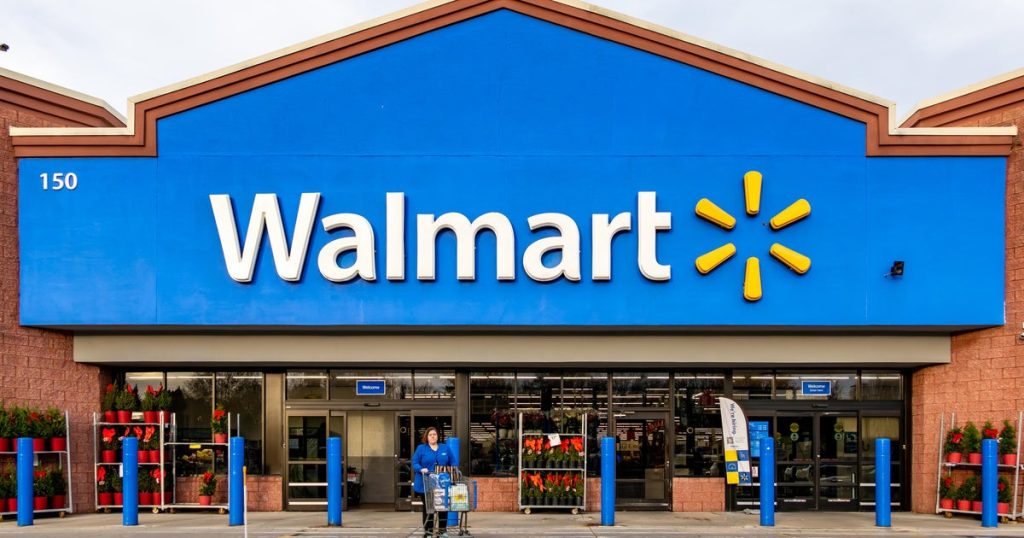In a recent escalation of rhetoric regarding retail pricing, former President Donald Trump publicly criticized Walmart for attributing upcoming price hikes to tariffs enacted by his administration. He asserted that the retail giant should “eat the tariffs” instead of passing costs onto consumers, amidst a backdrop of shifting economic policies. This confrontation illustrates the complex interplay between corporate pricing strategies and governmental fiscal policies, notably affecting relationships between the government and major retail players.
| Article Subheadings |
|---|
| 1) Walmart’s Price Concerns Amid Tariffs |
| 2) Trump’s Direct Challenge to Retail Giants |
| 3) Impact of Tariffs on American Businesses |
| 4) Warnings from Industry Leaders |
| 5) Broader Economic Implications |
Walmart’s Price Concerns Amid Tariffs
Recently, Walmart warned customers that a range of products, from bananas to car seats, could experience significant price increases as a result of ongoing tariffs imposed on imports. The retailer’s chief executive, Doug McMillon, noted during the company’s first quarter earnings call that even with some tariff reductions, higher tariffs contribute to increased costs that ultimately impact prices for consumers. Price hikes across various categories are anticipated to take effect later this month, which underscores the direct consequences of U.S. trade policies on everyday goods.
Trump’s Direct Challenge to Retail Giants
In a post on Truth Social, Donald Trump lambasted Walmart, urging the company to absorb the costs associated with the tariffs rather than transferring them to the consumer. He contended that Walmart, having generated substantial profits in the preceding year, should prioritize consumer welfare over profit margins. “Walmart should STOP trying to blame Tariffs as the reason for raising prices throughout the chain,” Trump stated, reinforcing his administration’s commitment to creating jobs in domestic manufacturing. His rhetoric places significant pressure on Walmart and similar companies to align their pricing strategies with governmental economic objectives.
Impact of Tariffs on American Businesses
The tariffs introduced have forced many major American retailers, including Walmart, to navigate a challenging landscape marked by rising operational costs and consumer price sensitivity. As Mr. Trump continues to enforce stringent import taxes, companies are caught in a difficult position: balancing wage and employment considerations with the need to maintain competitive pricing amid reduced profit margins. Analysts predict that the price of many consumer goods, including car seats manufactured in China, could see sharp increases, exemplified by Walmart’s CFO John David Rainey‘s projection of a 29% rise in affected items.
Warnings from Industry Leaders
Executive leaders from various industries have voiced concerns about the ripple effects of tariffs on consumer spending and revenue projections. Many companies have either lowered or entirely omitted their full-year expectations due to the uncertainties surrounding tariffs and their impact on consumer behavior. Despite various economic forecasts that suggest potential downturns, the administration appears to remain steadfast in its tariff strategies, risking supplier relationships and long-term market stability.
Broader Economic Implications
The broader implications of Trump’s tariffs are shaping a complicated economic narrative in the U.S. Nearly all industries are being forced to reevaluate their pricing structures as the retail sector feels the weight of higher import taxes. Currently, the administration has maintained a universal baseline tariff of 10% for most countries while employing tactics to negotiate favorable trade deals. This dynamic not only affects retailers and manufacturers but also strains relationships with key trading partners, such as Canada and Mexico, as tensions escalate over trade practices and economic strategy.
| No. | Key Points |
|---|---|
| 1 | Walmart is raising prices on various products citing tariffs imposed by the Trump administration. |
| 2 | Trump criticized Walmart for blaming tariffs and urged the company to absorb cost increases. |
| 3 | Many U.S. companies are adjusting their revenue expectations due to ongoing tariff impacts. |
| 4 | Executive leaders are warning of the fallout from tariffs amid reduced consumer spending. |
| 5 | The broader economic landscape is strained as companies navigate the implications of trade policies. |
Summary
The ongoing debate surrounding tariffs and their impact on retail pricing reflects a broader struggle between corporate accountability and governmental economic policies. Walmart’s response to increased costs amidst public scrutiny exemplifies the challenges retailers face under current trade agreements. As Donald Trump continues to advocate for a robust domestic economy, the ramifications of his trade policies ripple through American businesses, influencing pricing structures and future economic forecasts across various sectors.
Frequently Asked Questions
Question: What are the prime reasons for Walmart’s price increases?
Walmart attributed the anticipated price hikes to tariffs imposed on imported goods. These tariffs contribute to rising operational costs, prompting the company to adjust its pricing strategies accordingly.
Question: How has Trump responded to Walmart’s pricing concerns?
President Trump has publicly criticized Walmart for blaming tariffs for rising prices, suggesting that the retail giant should absorb the costs and thus protect consumer interests.
Question: What impact do tariffs have on American manufacturers?
Tariffs increase production costs for American manufacturers, which can lead to higher prices for consumers and reduced spending as businesses respond to these economic pressures.


